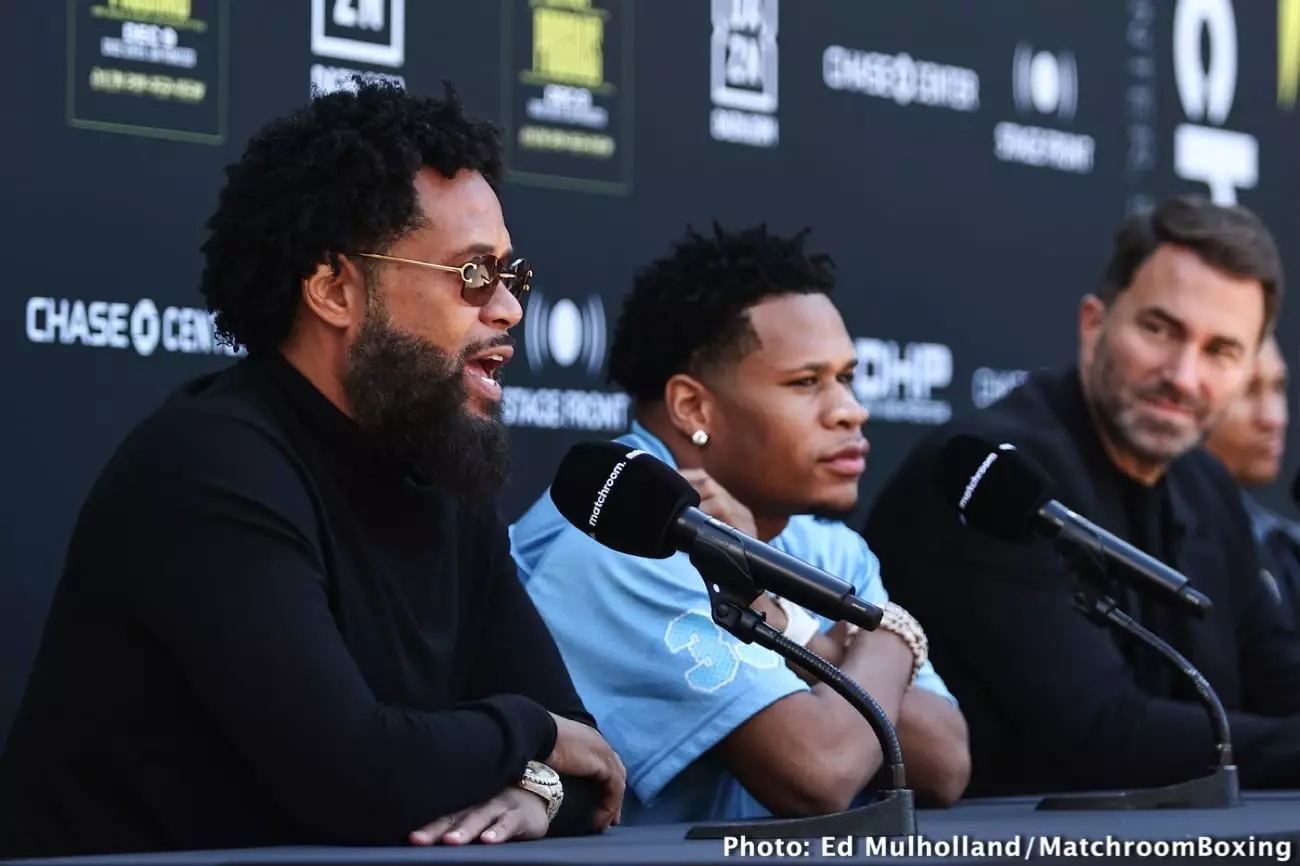By Maestro Amílcar Barnett M.
Drama often spills beyond the ring and into the public forum in the social media age. This was certainly exemplified when Bill Haney, father and manager to rising star Devin Haney, reacted to Oscar De La Hoya’s scathing remarks directed at him during a recent episode of Clapback Thursday. De La Hoya’s criticism stemmed from Bill’s decision to pursue legal action against Ryan Garcia following Devin’s defeat last April, with Oscar arguing that such a move detracted from the young fighter’s progress and potential activity in the sport.
De La Hoya’s assertions that the Haneys should have been focused on re-entering the ring indeed resonate in a sport where momentum can be everything. With transactional relationships between fighters and promoters, the balance between personal and professional often tips, leading to decisions that might not always serve a fighter’s career best. This public spectacle not only highlighted the tensions between veteran promoters and newer boxing personalities but also raised questions about how family dynamics play a role in professional athletics.
Bringing Family Matters to the Forefront
In response, Bill Haney defended his actions by emphasizing his successful management of Devin, who recently achieved the title of undisputed lightweight champion. He pointed out that despite Oscar’s jibes, he has built a career around mutual trust and support within their father-son relationship. For Bill, familial bonds seem to matter more than any outside criticism, reflecting a growing trend in sports where emotional connections can bolster an athlete’s performance.
It is an interesting juxtaposition when Bill challenges Oscar by highlighting that the former champion never reached the accolade his son did—being an undisputed champion. This insinuation is more than just a defense; it reflects the different generational approaches to boxing, where personal investment can translate into sporting success. Nevertheless, this responsive rhetoric showcases the necessity of being tactful, especially when navigating high-profile altercations in a public arena.
The Implications of Fighter Psychology
Furthermore, conversations among fans have pointed to Devin Haney’s inactivity in the ring, especially after his loss, suggesting that psychological elements played a crucial role in his decisions. Some speculate that the young fighter’s confidence may have suffered due to the high stakes surrounding his bouts. The looming rematch with Garcia could hold both promise and peril; the stakes are elevated not just for his career but also for the reputation that he and his father have built together.
In boxing, the aftermath of a loss can be psychologically taxing, influencing a fighter’s approach to their next bout. The fear of facing a rematch with high expectations can lead to indecision, thus the importance of resilience and support becomes critical. These emotional and mental facets of boxing cannot be understated, suggesting that an open dialogue among fighters, trainers, and family about these pressures might foster healthier competitive environments.
The clash between Bill Haney and Oscar De La Hoya serves as a poignant reminder of the complexities surrounding fame, familial loyalty, and the pressures of professional sport. As the boxing world continues to showcase high-stakes matchups, the internal family dynamics will remain a fertile ground for both critique and growth. The narrative emphasizes that beyond the physicalities of boxing, understanding the human elements at play can shape the trajectories of careers. In the end, it calls into question: is the fighter purely a product of their skills, or do the shadows of their familial relationships cast a larger influence in the ring?


Leave a Reply